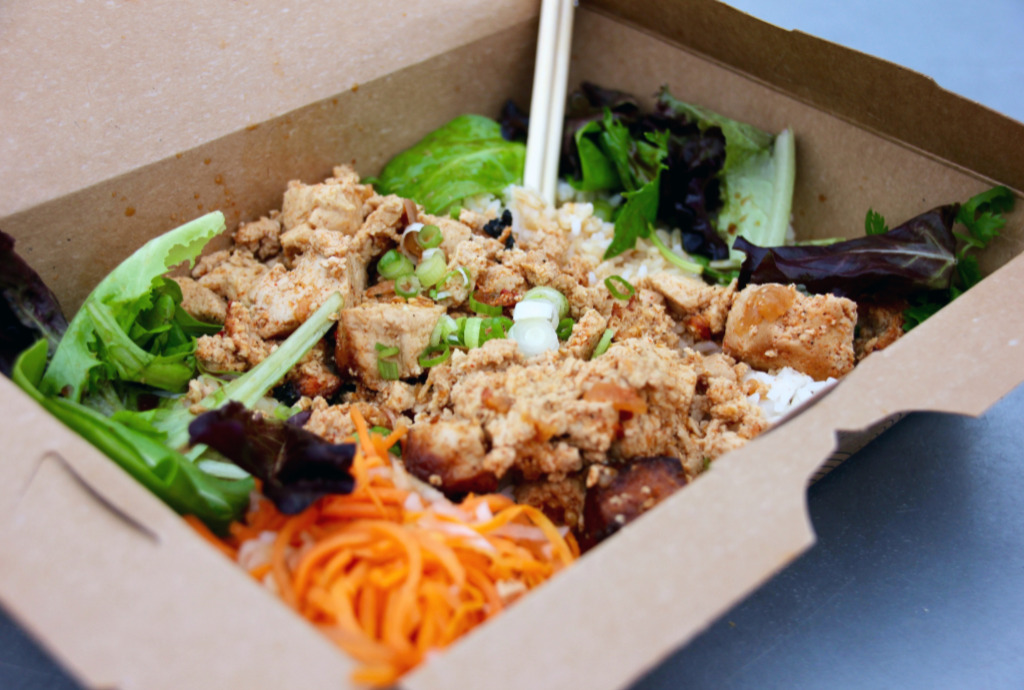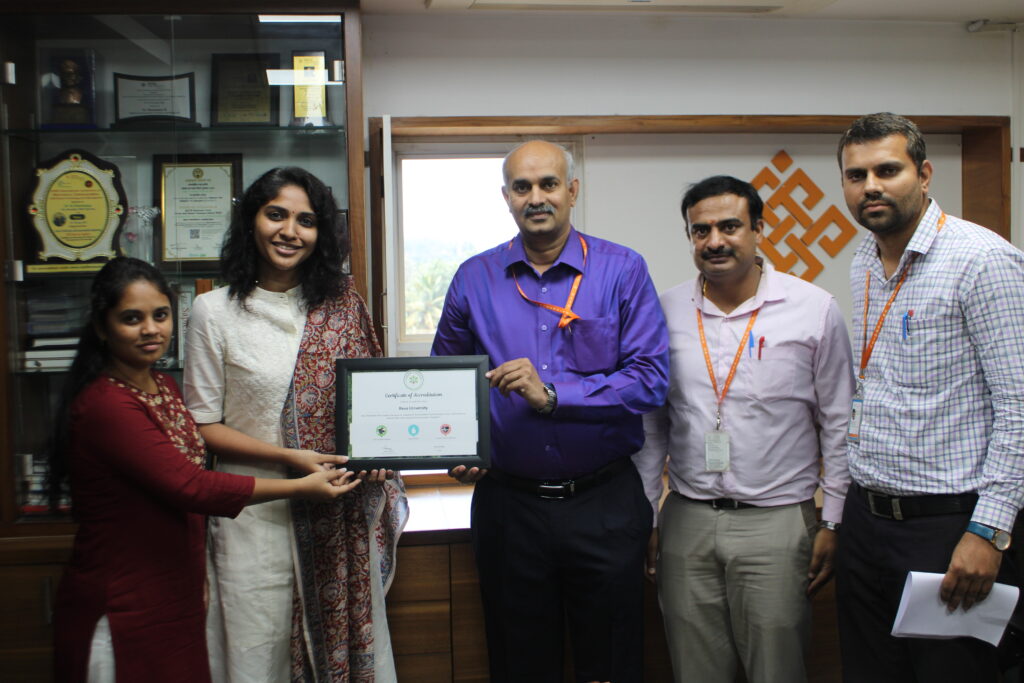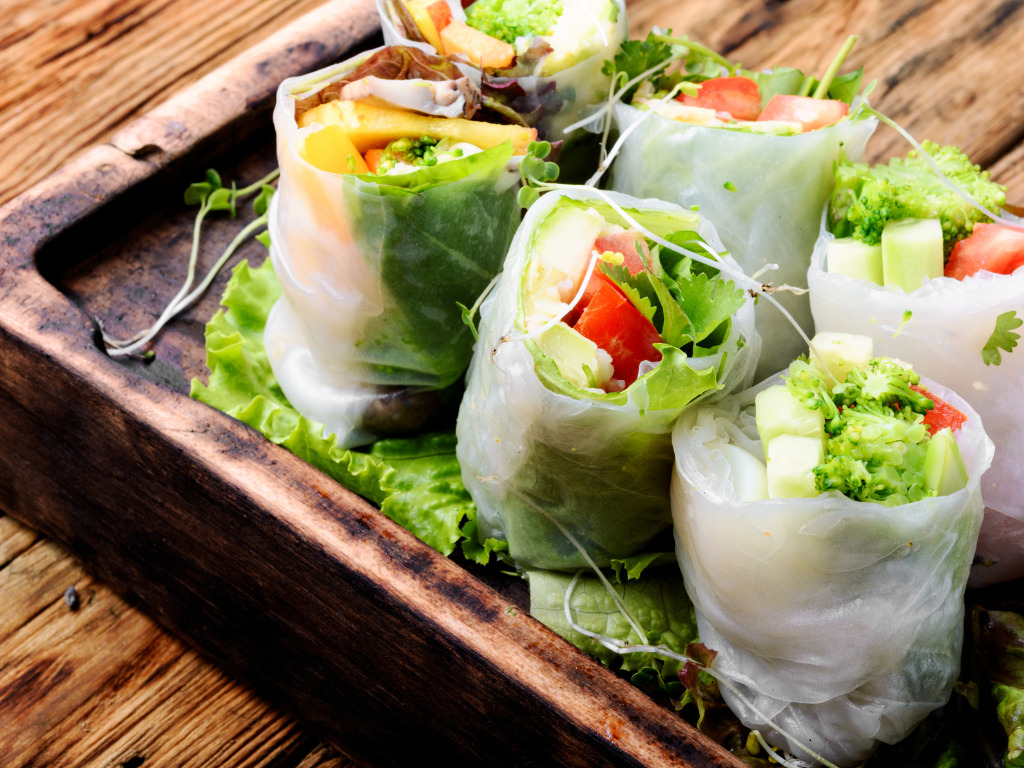Can the Green Tuesday Cafeteria Campaign Help Vietnam Lower Its Meat Emissions?
4 Mins Read
Non-profit organisation Vegan Outreach has expanded its Green Tuesday Initiative to Vietnam after five years in India. The programme hopes to reduce the impact of the country’s diet on the environment and is in talks with over 100 institutions about eating greener every Tuesday.
The Green Tuesday Initiative helps corporations and educational institutions tackle climate change by offering more plant-based food at their dining premises. Over the last five years, the campaign has helped prevent over 3.3 million lbs of animal products from being served at more than 40 institutions in India. Now, it hopes to extend this impact to Vietnam, one of the world’s top five most vulnerable countries to climate change.
The Southeast Asian country’s two biggest cities, Ho Chi Minh City and Hanoi, are among the 15 most polluted cities in the region. And its dependence on fossil fuels for energy use – which are already responsible for 60% of its total greenhouse gas emissions – is set to triple by 2030. Meanwhile, higher temperatures, rising sea levels and more extreme weather events can cut the nation’s economic growth by 10%, and adversely affect 12% of its population.
On top of that, Vietnamese people are eating too much meat – twice as much as the recommended amount. In fact, a report published in July found that the country will need to switch to 40% of alternative proteins in its diet by 2060 if it is to decarbonise.
And with meat consumption intrinsically linked to climate change – a landmark study earlier this year found that vegan diets can cut emissions, land use and water pollution by 75% compared to a meat-rich one – the Green Tuesday Initiative is aiming to reduce the presence on animal products in the country’s eating habits, and add more plant-based options to institution menus.
Battling Vietnam’s climate vulnerability and activist clampdown

“Vietnam and many other Asian countries are becoming increasingly vulnerable to climate change. Choosing to serve more climate-friendly food would be the first step in understanding and reducing the impact of food on the planet and people’s health,” says Bhavya Vatrapu, senior campaigns manager for Green Tuesday Initiative.
“The Initiative delivers on seven UN Sustainable Development Goals, and aligns with Vietnam’s methane reduction goals and Climate and Clean Air Coalition commitments. We look forward to working with corporate organisations and educational institutions in Vietnam towards building a green and abundant future for all.
“Vietnam, like India, is extremely vulnerable to the threats of climate change, and has committed to reducing its methane emissions on priority,” says Samarth Amarnani, communications coordinator at Vegan Outreach. “Also, we’ve witnessed great excitement for our flagship 10 Weeks to Vegan programme amongst youth in Vietnam. This means that there is a passionate and growing community of people inclined to shift towards a plant-based diet.”
Amarnani says the initiative has reached out to 100 institutions, and confirms that many have expressed interest in the campaign. “While we do have some potential institutions in the pipeline, we do not have any official partners there currently,” he adds.
Climate activism has been a major point of contention in Vietnam. The country has a history of arresting environmental campaigns on what many have described as bogus claims. The June arrest of Hoang Thi Minh Honh, former CEO of the non-profit Change, prompted a further outcry. Two others, Mai Phan Loi and Bach Hung Duong, have also been imprisoned, while another activist, Hoang Thi Minh Hong, is awaiting sentencing.
So while the country has committed to reducing its methane emissions and net-zero by 2050, there are questions over the government’s motivations, given the growing list of political prisoners. Asked if Green Tuesday had been in touch with officials, Amarnani says: “We have just started our campaign in Vietnam. So far, we have not yet had any interaction with the Vietnamese government.” (He also confirms that the campaign in India hasn’t “faced any resistance or restriction from the government”.)
Less meat, more plants every Tuesday

The campaign aims to replace about 44,000 lbs of animal products with plant-based food by the end of 2023, and it will do so via a combination of participating institutions going completely vegan, or reducing their meat options every Tuesday. “Our partnership with institutions is based on a long-term vision of progressive diet change,” notes Amarnani. “We have had great success in India with institutions renewing and deepening their commitment by serving more healthy plant-based meals each year. The institutions define their own food sustainability goals, and we help them achieve those.”
While Vietnam’s poverty rate was at 4.2% last year, without mitigation measures, up to one million of its population could be in extreme poverty by 2030. Are there any concerns about the price of vegan food for this initiative to work? “We have observed that in many major Asian countries, several traditional dishes happen to be plant-based, which makes implementing our campaign cost-effective,” explains Amarnani. “We have helped our partners in India achieve their food sustainability objectives without any additional costs to the institution. Our approach for Vietnam is the same.”
Vegan Outreach hopes to expand to even more countries in the future. “We have long-term expansion goals for Green Tuesday Initiative,” says Amarnani, adding: “For now, however, we are focusing our energy and resources on establishing ourselves as a successful food sustainability campaign in Vietnam.”



